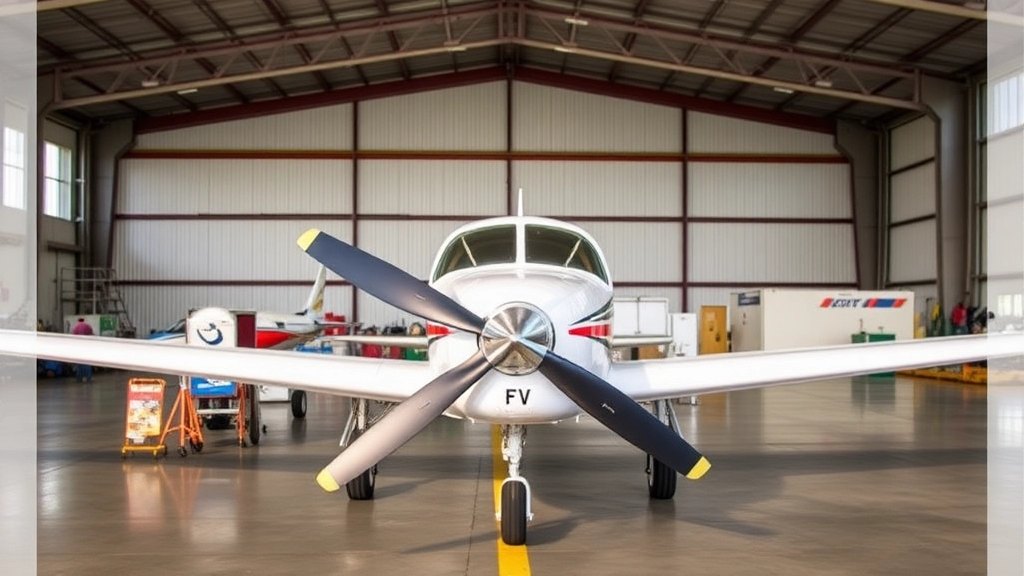Aviation Summer Camps for High School Students
Are you a high school student fascinated by the world of aviation, or perhaps a parent looking to ignite that passion in your teenager? Look no further! Aviation summer camps for high school students offer an unparalleled opportunity to dive into the skies, both literally and figuratively. From hands-on experiences with flight simulations and real-time flying to exploring STEM through aviation programs, these camps provide a comprehensive introduction to the aviation industry.
Opportunities Offered
But that’s not all—these camps also open doors to various career pathways in aviation, offer field trips to iconic aviation sites and museums, and even include opportunities for drone training and competitions.
Financial Considerations
Financial concerns? Don’t worry; there are scholarships and financial aid options available to make these dreams accessible. Whether you prefer a residential or non-residential camp, meeting and learning from aviation professionals will inspire and prepare you for a future in the skies.
Why Choose Aviation Camps?
Early exposure to aviation can be a game-changer, building confidence, skills, and a network that will serve you well in any career path you choose.
Hands-On Aviation Experience for High School Students
Ever wondered how you can get your teenager interested in aviation? Or maybe they’re already hooked on the idea of flying but don’t know where to start? Hands-on aviation experience for high school students might just be the answer you’re looking for.
Why Hands-On Experience Matters
Let’s face it, reading about planes in textbooks is one thing, but actually getting your hands dirty is where the magic happens. Here’s why hands-on experience is a game-changer:
- Real-World Application: It’s one thing to learn the theory, but applying that knowledge in a real-world setting is where true understanding happens.
- Engagement: Kids are more likely to stay interested when they’re actively involved. Sitting in a cockpit or working on an engine is way cooler than just reading about it.
- Skill Development: Practical experience helps develop critical skills like problem-solving, teamwork, and technical know-how.
Types of Hands-On Experiences
So, what does hands-on aviation experience look like for high school students? Here are some options:
Flight Simulations
Flight simulators are a fantastic way to get a feel for flying without ever leaving the ground. They offer:
- Realistic Training: Modern simulators mimic real flight conditions, giving students a taste of what it’s like to be a pilot.
- Safe Environment: Perfect for beginners, simulators provide a risk-free way to learn and make mistakes.
- Immediate Feedback: Students can see the consequences of their actions in real-time, which is invaluable for learning.
Real-Time Flying Opportunities
Nothing beats the thrill of getting up in the air. Many aviation programs offer:
- Introductory Flights: These short flights give students a chance to co-pilot with an experienced instructor.
- Flight Schools: Some high schools partner with local flight schools to offer extended training programs.
- Youth Aviation Clubs: These clubs often organise group flights and other aviation-related activities.
Making It Accessible
You might be thinking, âThis sounds great, but how do we afford it?â Good question. Here are a few ways to make aviation experiences more accessible:
- Scholarships and Financial Aid: Many programs offer financial assistance to help cover costs.
- Community Programs: Look for local aviation clubs or community centres that offer free or low-cost programs.
- Fundraising: Get creative with fundraising efforts, like car washes or bake sales, to help cover expenses.
Real Stories, Real Impact
Let me share a quick story. I knew a kid named Jake who was obsessed with planes. He joined a local aviation club and got to sit in a real cockpit for the first time. That experience lit a fire in him. Today, Jake is training to be a commercial pilot. It all started with that one hands-on experience.
The Takeaway
Hands-on aviation experience for high school students isn’t just about learning to fly; it’s about sparking a passion and opening doors to future careers. Whether it’s through flight simulations or real-time flying, these experiences can make a world of difference.
If you’re interested in other unique summer camp opportunities, check out the STEM Gem Summer Camp at Georgia Tech or explore the College of DuPage Summer Camps for more hands-on learning experiences.
Flight Simulations and Real-Time Flying Opportunities
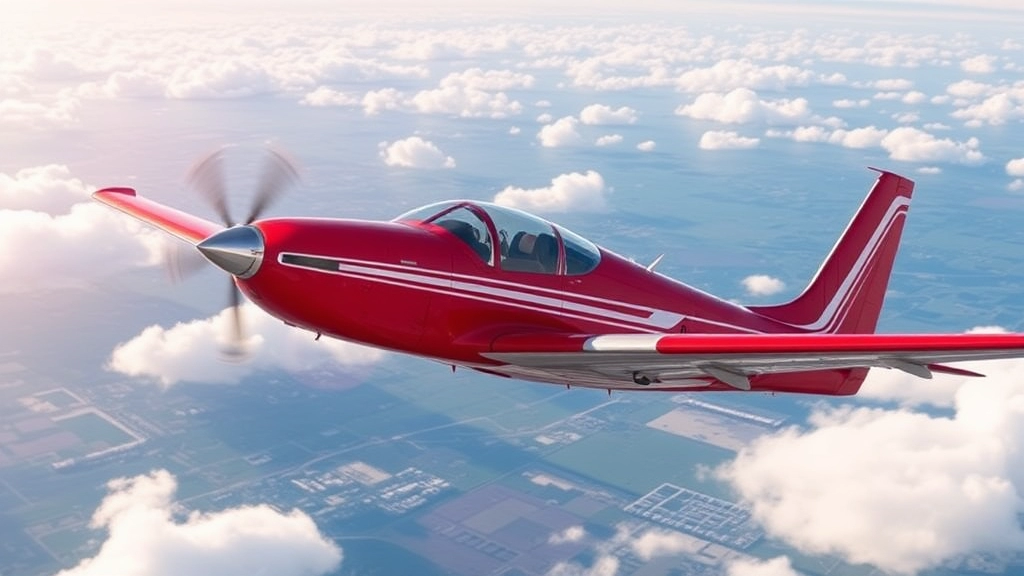
Ever wondered what it’s like to soar through the sky?
I get it.
Flying can seem like a distant dream. But what if I told you there are ways to get a taste of it right now?
Why Flight Simulations?
Flight simulations are the game-changer.
They let you experience flying without leaving the ground.
Think of it like a video game but way cooler and more educational.
Here’s why they’re awesome:
- Realistic Experience: You get to handle controls just like a pilot.
- Safe Environment: No risk, all reward. Perfect for beginners.
- Instant Feedback: Learn and improve with every session.
Real-Time Flying Opportunities
Now, let’s talk about the real deal.
Feeling the rush of being up in the air is something else.
Here’s how you can get involved:
- Introductory Flights: Short flights with an instructor. You might even get to take the controls.
- Flying Clubs: Join local clubs to connect with others and find flying opportunities.
- Youth Aviation Programs: Many offer real-time flying experiences. Check them out!
Stories from the Sky
I remember my first simulation.
I was nervous, but the moment I took control, it was like magic.
And when I finally got to fly for real?
Unforgettable.
Why It Matters
These experiences aren’t just fun.
They’re a stepping stone into the world of aviation.
They build confidence and skills you can’t get from a textbook.
Take the Leap
So, if you’re itching to fly, start with simulations.
Then, grab every chance to get in the air.
You won’t regret it.
Flight simulations and real-time flying opportunities are your ticket to the skies.
Exploring STEM Through Aviation Programs
Ever wondered how aviation can open up a world of STEM opportunities for high school students? Trust me, you’re not alone. Many parents and students are curious about how aviation can be a gateway to understanding science, technology, engineering, and maths. Let’s dive into it.
Why Aviation for STEM?
Aviation is not just about flying planes. It’s a rich field full of real-world applications of STEM principles. Think about it:
- Physics: Understanding how planes fly.
- Engineering: Designing aircraft and their components.
- Technology: Using advanced systems for navigation and communication.
- Maths: Calculating flight paths and fuel requirements.
By getting involved in aviation programs, students can see these subjects come to life. It’s way more engaging than just reading about them in textbooks.
Hands-On Learning
One of the coolest things about aviation programs is the hands-on experience. You’re not just learning theory; you’re applying it. Here’s what students can expect:
- Flight Simulations: These high-tech simulators give students a taste of what it’s like to fly a plane without leaving the ground. They learn to handle controls, read instruments, and make quick decisions.
- Workshops: From building model aircraft to programming drones, these workshops offer practical skills.
- Real-Time Flying: Some programs even offer opportunities for students to co-pilot a small aircraft under the supervision of a certified instructor.
Real-World Applications
Aviation programs teach skills that are directly applicable to real-world scenarios. Here’s how:
- Problem-Solving: Pilots and engineers constantly solve complex problems, from weather challenges to mechanical issues.
- Teamwork: Aviation is a team effort. Pilots, air traffic controllers, and ground crews must work seamlessly together.
- Critical Thinking: Making quick, informed decisions is a daily part of aviation.
Stories from the Sky
Let me share a quick story. I once met a high school student, Sarah, who was struggling with maths. She joined an aviation program and found herself fascinated by the calculations involved in flight planning. Suddenly, maths wasn’t just numbers on a page; it was a tool she could use to navigate the skies. Her grades improved, and she discovered a passion for aerospace engineering.
Internal Linking Opportunity:
If you’re intrigued by how aviation can boost STEM learning, you might also want to check out our section on top math camps for summer 2024 to see how students can get a taste of flying without leaving the ground.
Breaking Down the Benefits
Here’s why exploring STEM through aviation is a game-changer:
- Engagement: Students find STEM subjects more interesting when they see real-world applications.
- Skill Development: From technical skills to soft skills like teamwork and communication.
- Career Pathways: Opens up various career options in aviation and related fields.
For more information on engaging summer activities, check out our guide on fun activities and safe environments at summer camps.
Career Pathways in the Aviation Industry
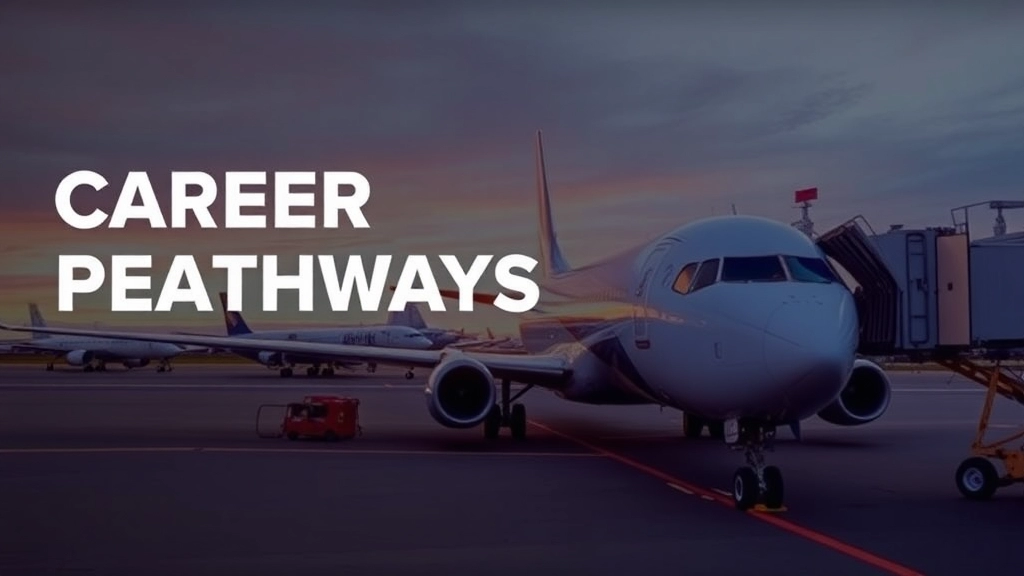
Ever wondered about what career paths are available in aviation?
Maybe you’re thinking, “Is being a pilot the only option?”
Spoiler alert: It’s not.
There are loads of opportunities in aviation that go beyond the cockpit.
Let’s dive into the different career pathways in the aviation industry.
Pilots and Beyond
Sure, becoming a pilot is the dream for many.
But the aviation industry is a vast landscape.
Here are some roles you might not have considered:
- Air Traffic Controllers: They keep the skies safe by managing aircraft movements.
- Aircraft Maintenance Engineers: These folks ensure planes are airworthy.
- Aerospace Engineers: They design and develop new aircraft and systems.
- Flight Attendants: They play a crucial role in passenger safety and comfort.
- Aviation Management: Oversee operations at airports and airlines.
- Aviation Safety Inspectors: Ensure compliance with aviation regulations.
Real Stories, Real People
Take Sarah, for example.
She started as a flight attendant.
Now, she manages a team of 50 at a major airline.
Or consider Tom, who began as an aircraft mechanic.
Today, he’s an expert in aerospace engineering, working on cutting-edge tech.
Training and Education
Worried about the qualifications?
Here’s the lowdown:
- Pilots: Need a commercial pilot’s licence (CPL) and extensive flight training.
- Engineers: Typically require a degree in aerospace or mechanical engineering.
- Air Traffic Controllers: Must pass rigorous training and certification.
- Flight Attendants: Often need customer service experience and specific training courses.
Internships and Entry-Level Jobs
Not ready to jump into a full-time role?
No problem.
Many aviation companies offer:
- Internships: Get hands-on experience while still studying.
- Entry-Level Positions: Start small and work your way up.
Networking and Mentorship
Ever heard the saying, “It’s not what you know, but who you know”?
In aviation, networking is key.
- Join aviation clubs: Meet like-minded individuals.
- Attend industry events: Connect with professionals.
- Seek mentors: Learn from those who’ve been there, done that.
Financial Aid and Scholarships
Worried about the cost?
Don’t be.
There are numerous scholarships and financial aid options available.
Check out:
- Aviation scholarships: Specific to various roles within the industry.
- Government grants: Available for training and education.
The Bottom Line
The aviation industry offers a plethora of career pathways.
From pilots to engineers, there’s something for everyone.
And with the right training and networking, the sky’s the limit.
So, what’s stopping you?
Explore the aviation industry and carve out your dream career.
Field Trips to Aviation Sites and Museums
Ever wondered what it’s like to stand next to a Boeing 747 or see the cockpit of a fighter jet up close? Yeah, me too. Field trips to aviation sites and museums are a game-changer for high school students interested in aviation. These trips aren’t just about seeing cool planes; they’re about diving deep into the world of aviation, understanding its history, and getting inspired for the future.
Why Field Trips Matter
Field trips offer experiences that you just can’t get in a classroom. They bring the textbooks to life and make the abstract real. Here’s why they matter:
- Hands-On Learning: You get to see and touch real aircraft, engines, and other aviation tech.
- Historical Context: Museums often have exhibits that show the evolution of aviation, helping you understand how we got to where we are today.
- Inspiration: Meeting retired pilots, engineers, and other aviation professionals can light a fire under you like nothing else.
What You Can Expect
When you visit aviation sites and museums, you’re not just walking around looking at stuff. You’re immersing yourself in a world that’s both fascinating and complex. Here’s a snapshot of what you can expect:
- Guided Tours: Experts walk you through the exhibits, sharing stories and answering questions.
- Interactive Displays: Many museums have flight simulators, VR experiences, and hands-on exhibits.
- Workshops: Some places offer workshops where you can learn about aerodynamics, aircraft maintenance, and even pilot training.
Must-Visit Aviation Sites and Museums
If you’re in the UK, there are some must-visit spots that should be on your radar:
- Imperial War Museum Duxford: Home to a massive collection of aircraft, from WWI biplanes to modern jets.
- RAF Museum London: Offers a deep dive into the history of the Royal Air Force.
- National Museum of Flight Scotland: Features everything from Concorde to Cold War-era jets.
Making the Most of Your Visit
To really get the most out of these field trips, here are some tips:
- Prepare Questions: Think about what you want to learn and ask lots of questions.
- Take Notes: Jot down interesting facts or ideas that you can explore later.
- Network: If you meet professionals, get their contact info. You never know when a connection might come in handy.
Real Stories, Real Impact
I remember my first trip to an aviation museum. I was blown away by the sheer size of the aircraft and the intricate details of their design. Talking to a retired RAF pilot who had flown combat missions was a pivotal moment for me. It made me realise that a career in aviation was not just a dream but a tangible goal.
For more inspiration, check out our top summer camps in Nashville or discover the benefits of gaming summer camps.
Opportunities for Drone Training and Competitions
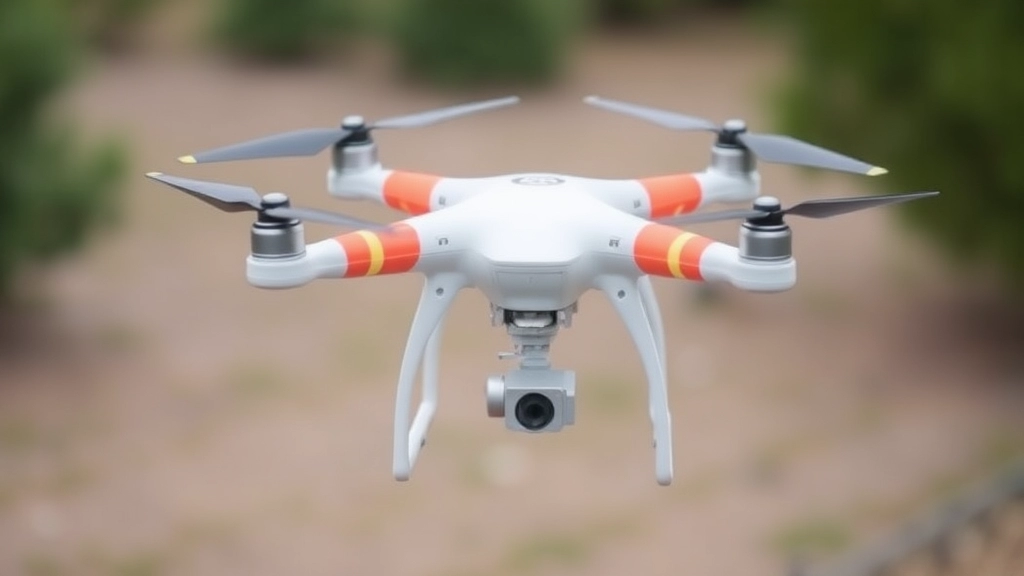
Ever wondered how to get into drone flying without breaking the bank?
Or maybe you’re curious about how to compete with drones and actually win something?
Let’s dive into it.
Why Drones?
Drones are everywhere.
They’re not just toys; they’re tools.
From filming to mapping, drones are changing the game.
And there’s a real need for skilled pilots.
Getting Started with Drone Training
Here’s the good news: you don’t need to be a tech genius to start.
Basic Steps:
- Find a Local Course: Many schools and community centres offer beginner classes.
- Online Resources: Websites like Udemy or Coursera have courses that won’t cost you a fortune.
- Hands-On Practice: Get a basic drone and start flying. Experience is key.
Competitions: Show Off Your Skills
Competitions are where the fun starts.
You get to meet other enthusiasts and learn from the best.
How to Get Involved:
- Join Local Clubs: They often organise events and competitions.
- Online Platforms: Websites like MultiGP list upcoming drone races.
- Start Small: Participate in local events before hitting the big leagues.
Why Compete?
It’s not just about winning.
It’s about learning, networking, and having a blast.
Plus, there are often prizes and recognition up for grabs.
Real Stories
I remember chatting with a young pilot who started with a cheap drone from a toy store.
Now, he’s competing nationally and even landed a job with a media company.
That’s the power of getting involved.
Financial Aid and Scholarships
Worried about costs?
There are scholarships and financial aid options available for budding pilots.
Check with local clubs or educational institutions.
The Bottom Line
Drone training and competitions are accessible to everyone.
And they’re a fantastic way to explore a potential career path.
Aviation Camp Scholarships and Financial Aid Options
Alright, let’s get real. Aviation camps can be a game-changer for high school students interested in the skies, but they can also be pricey. So, how do you make it happen without breaking the bank? Let’s dive into aviation camp scholarships and financial aid options.
Why Worry About Costs?
First off, I get it. You’re probably thinking, “How can I afford this?” or “Is there any financial help for aviation camps?” These are valid questions, and you’re not alone. Many students and parents have the same worries. But don’t sweat it; there are solutions.
Scholarships: Your Ticket to the Skies
Scholarships can be your golden ticket. They’re essentially free money that you don’t have to pay back. Here are a few avenues to explore:
- Aviation Organisations: Groups like the Experimental Aircraft Association (EAA) and the Aircraft Owners and Pilots Association (AOPA) often offer scholarships specifically for aviation camps.
- Local Aviation Clubs: Sometimes, local clubs or community organisations have funds set aside to help young aviators.
- Corporate Sponsors: Big names in the aviation industry sometimes sponsor students. Think Boeing, Airbus, or even local airlines.
- School Guidance Counsellors: Always a good resource. They might know about local or national scholarships you haven’t heard of.
Financial Aid: Because Every Little Bit Helps
If scholarships don’t cover everything, financial aid can fill in the gaps. Here’s how you can tap into these resources:
- Payment Plans: Some aviation camps offer flexible payment plans. It’s worth asking if you can spread out the cost over several months.
- Grants: Unlike loans, grants don’t need to be repaid. Look for grants aimed at STEM education or youth programs.
- Work-Study Programs: Some camps offer work-study options where you can work at the camp to offset some of your costs.
Real Stories, Real Solutions
Let me share a quick story. I knew a student, Jake, who was passionate about aviation but couldn’t afford camp. He applied for multiple scholarships and ended up securing a couple from local aviation clubs. He also worked part-time at the camp to cover additional costs. Today, Jake is well on his way to becoming a pilot.
Steps to Secure Financial Aid
Here’s a quick checklist to help you get started:
- Research: Look for scholarships and financial aid options early.
- Apply: Don’t just apply for one; apply for multiple scholarships.
- Ask Questions: Reach out to camp organisers about any financial aid they offer.
- Follow Up: After applying, follow up to ensure your application is being considered.
For more information on how to make the most of your summer camp experience, check out our Ultimate Guide to Kids Summer Camps and learn about Grants for Summer Camps to help secure funding.
Residential and Non-Residential Aviation Camp Experiences
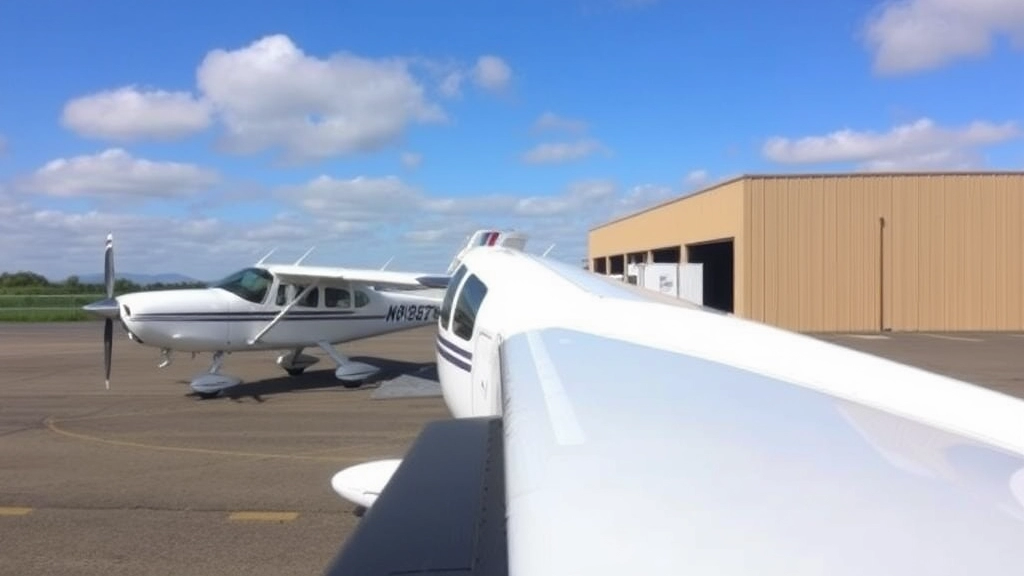
Ever wondered if aviation camps are worth it?
Let’s break it down.
What’s the Difference?
Residential Camps:
- You stay overnight.
- Full immersion in aviation.
- Bond with fellow aviation enthusiasts.
Non-Residential Camps:
- Daytime only.
- Go home each night.
- Flexibility for local students.
Why Choose Residential Camps?
Living on-site means:
- More time in simulators.
- Extra hours with instructors.
- Deep dive into aviation topics.
Perks of Non-Residential Camps
If you’re local or not ready to stay overnight:
- Keep your evenings free.
- Less expensive.
- Still get hands-on experience.
Real Stories, Real Impact
I remember a student, Jake, who attended a residential camp.
He was hesitant at first, but by the end, he was flying simulators like a pro.
He even built lifelong friendships.
What About the Cost?
Worried about the price tag?
There are scholarships and financial aid options available.
Many camps offer payment plans too.
Making the Choice
Ask yourself:
- Do I want a full immersion?
- Am I okay with staying overnight?
- What’s my budget?
Ready to take off?
Check out our article on Aviation Camp Scholarships and Financial Aid Options.
Got questions?
Drop them below, and let’s chat.
Meeting and Learning From Aviation Professionals
Ever wondered what it’s like to be a pilot or an aerospace engineer? Meeting and learning from aviation professionals can give you a front-row seat to the action, and it’s one of the most exciting parts of any aviation programme. Trust me, this isn’t just about listening to someone drone on about their job. It’s about getting real insights, practical tips, and a peek behind the curtain of the aviation world.
Why Meet Aviation Pros?
Real Talk: You get to ask all those burning questions. What’s it like flying through a storm? How do you handle emergencies? What does a day in the life of an aircraft mechanic look like?
Networking: Building connections early on can be a game-changer. You never know when that pilot you met might help you land an internship or give you a heads-up about job openings.
Inspiration: Hearing stories from those who’ve been there and done that can light a fire under you. It’s one thing to read about aviation careers, but it’s another to hear firsthand accounts from people who are living it.
What Can You Learn?
Meeting aviation professionals isn’t just about starry-eyed admiration. It’s about learning practical skills and gaining insider knowledge. Here’s what you can expect:
- Career Pathways: Get the lowdown on different roles in the industry. From pilots to air traffic controllers, there’s a lot more to aviation than meets the eye.
- Skills Needed: Discover the skills that are in demand. Whether it’s technical know-how, problem-solving, or teamwork, you’ll get a clear picture of what you need to succeed.
- Industry Trends: Stay ahead of the curve by learning about the latest trends and technologies. Whether it’s advancements in drone tech or eco-friendly aviation, staying updated is crucial.
How to Make the Most of It
When you get the chance to meet aviation pros, don’t just sit there nodding your head. Engage, ask questions, and take notes. Here’s how to make the most of these opportunities:
- Prepare Questions: Before you meet, jot down a list of questions. Think about what you genuinely want to know.
- Follow Up: If you get a business card or contact info, don’t be shy about following up. A thank-you email can go a long way.
- Stay Connected: Use LinkedIn or other professional networks to stay in touch. You never know when a connection might come in handy.
Real Stories, Real Impact
I remember meeting a commercial pilot during an aviation camp. He shared a story about handling an engine failure mid-flight. The way he remained calm and used his training to land safely was nothing short of inspiring. It made me realise the importance of staying calm under pressure and trusting your training. These are lessons you can’t just pick up from a textbook.
Meeting aviation professionals can be a game-changer. It’s not just about hearing cool stories; it’s about gaining valuable insights, building connections, and getting inspired. So, next time you get the chance to meet someone from the aviation industry, jump on it. You won’t regret it.
For more tips on making the most of your summer, check out our 2024 Summer Camp Guide.
Keyword: Meeting and learning from aviation professionals
Benefits of Early Exposure to the Aviation Sector
Ever wondered if getting into aviation early is worth it?
I’m here to tell you, it absolutely is.
Let’s dig into why early exposure to the aviation sector can be a game-changer.
Why Start Young?
1. Clarity on Career Paths
Getting a head start in aviation helps students figure out if this is their true calling.
They can explore different rolesâpilot, engineer, air traffic controllerâbefore committing to a career path.
2. Hands-On Learning
Early exposure means more time for hands-on experience.
Whether it’s flight simulations or real-time flying, students get to practice what they learn.
This isn’t just theory; it’s real-world application.
3. Boost in Confidence
Imagine the confidence boost from flying a plane or operating a drone.
Early experiences build self-assurance that carries over into other areas of life.
4. Networking Opportunities
Starting young opens doors to meet industry professionals.
Networking with pilots, engineers, and other experts can lead to mentorship and future job opportunities.
5. Competitive Edge
Students with early aviation experience stand out in college applications and job interviews.
They’ve got a unique skill set that not many others have.
Real Stories, Real Impact
Take Sarah, for example.
She joined an aviation camp at 15 and is now a commercial pilot.
Her early exposure gave her a clear path and the confidence to pursue her dreams.
Or Jake, who started with drones in high school and now runs a successful drone photography business.
These aren’t just stories; they’re proof that early exposure works.
How to Get Started
1. Join Aviation Camps
Look for residential or non-residential camps.
Many offer scholarships and financial aid.
2. Participate in Flight Simulations
Many programmes offer flight simulations and real-time flying opportunities.
3. Explore STEM Through Aviation
Aviation is a fantastic way to dive into STEM subjects.
It makes learning maths and science fun and practical.
4. Take Field Trips
Visit aviation sites and museums.
Seeing the industry up close can be incredibly inspiring.
5. Drone Training and Competitions
Get into drone training.
Participate in competitions to test your skills.
For more information on related activities, check out our STEM-focused camps.
FAQs on Aviation Summer Camps for High School Students
What are aviation summer camps?
Aviation summer camps are specialized programs designed to introduce high school students to the world of aviation. These camps offer a mix of theoretical learning and practical experiences, such as flight simulations and real-time flying opportunities.
What activities can I expect at an aviation summer camp?
Activities typically include flight simulations, introductory flights with instructors, and various educational sessions about aviation careers. Some camps also offer drone training and competitions.
Are there different types of aviation camps?
Yes, there are residential and non-residential aviation camps. Residential camps require students to stay overnight, offering full immersion in aviation, while non-residential camps are daytime-only programs, providing flexibility for local students.
Why should I consider flight simulations?
Flight simulations offer a realistic flying experience without leaving the ground. They are safe, provide instant feedback, and help you learn the basics of flying in a controlled environment.
Can I actually fly a plane at these camps?
Yes, many aviation summer camps offer real-time flying opportunities, such as introductory flights where you might even get to take the controls under the supervision of an instructor.
What career paths can aviation camps lead to?
Aviation camps can introduce you to various career paths, including being a pilot, air traffic controller, aircraft maintenance engineer, aerospace engineer, flight attendant, aviation management, and aviation safety inspector.
Are there opportunities for drone training at these camps?
Yes, many aviation camps offer drone training and even competitions. These programs teach you the basics of drone flying and provide opportunities to compete and network with other enthusiasts.
Is financial aid available for aviation summer camps?
Yes, there are scholarships and financial aid options available for students attending aviation summer camps. Many camps also offer payment plans to make the experience more affordable.
How do I choose between a residential and non-residential camp?
Consider your personal preferences and circumstances. Residential camps offer full immersion and more hands-on experience, while non-residential camps provide flexibility and are usually less expensive. Ask yourself if you want a full immersion experience and if you are comfortable staying overnight.
What should I do if I have more questions?
If you have more questions, feel free to drop them below or check out our detailed article on Aviation Camp Scholarships and Financial Aid Options.
References
-
Udemy: Online Courses
-
Coursera: Online Learning
-
MultiGP: Drone Racing League

